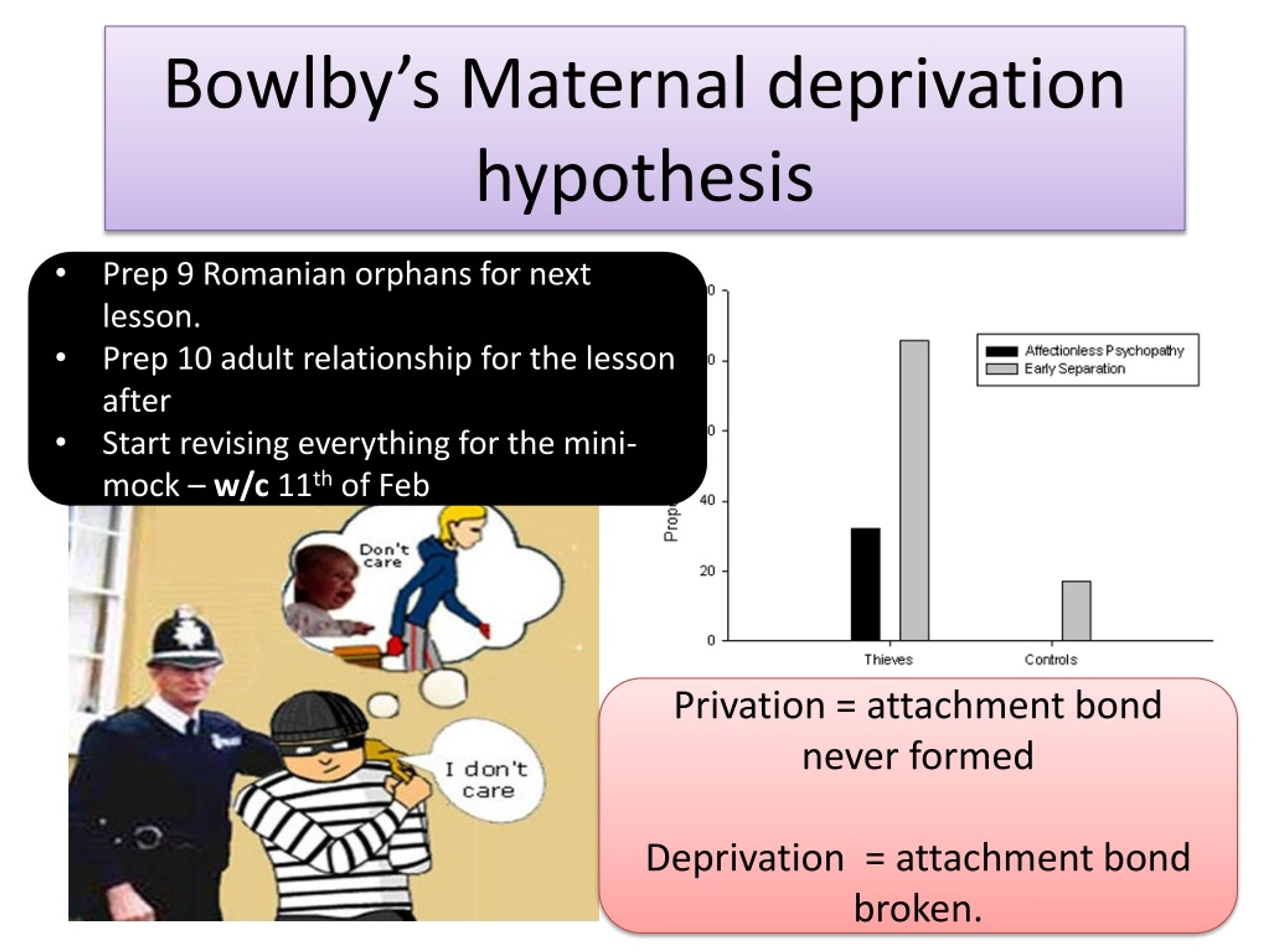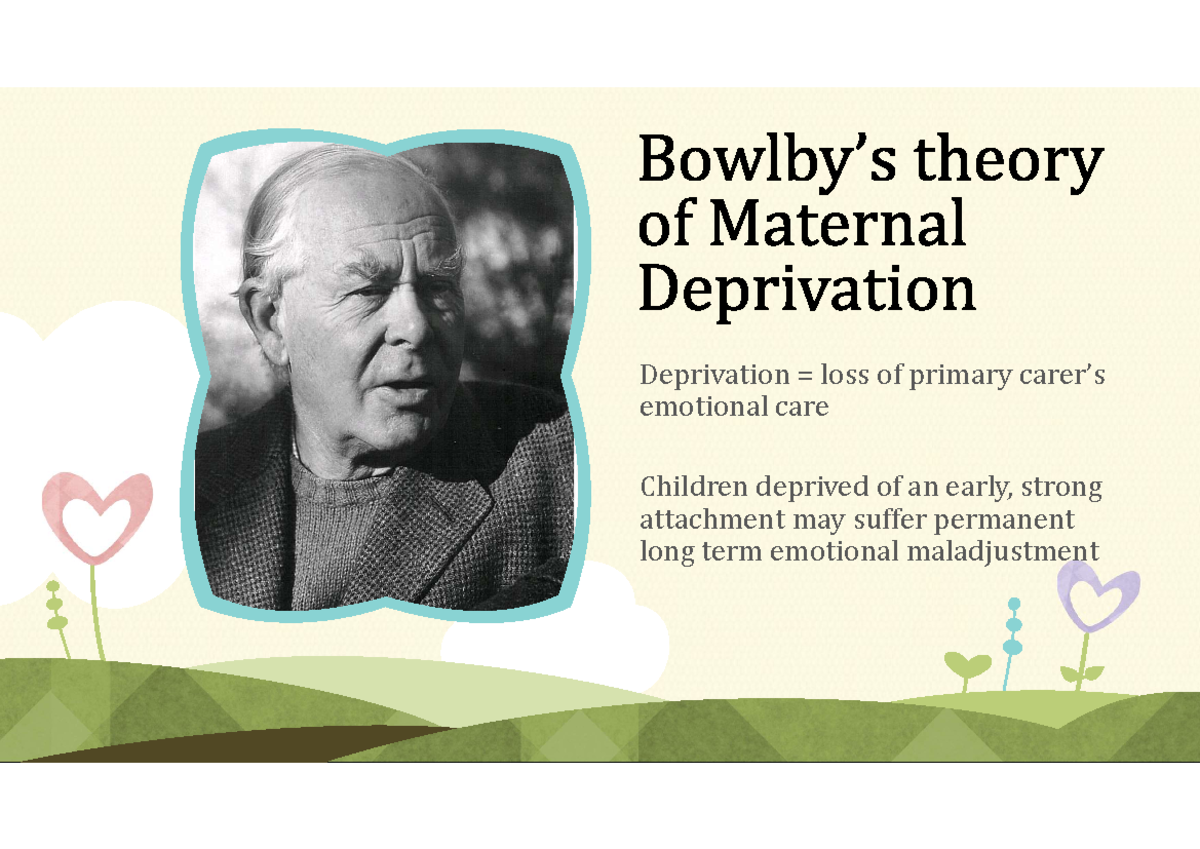John Bowlby’s View On Maternal Deprivation And Its Impact On Emotional Health
The Shadow of Absence: Unpacking John Bowlby’s Haunting Theory of Maternal Deprivation
Growing up, I always assumed that love was a constant, a warm blanket woven from the threads of family and friends. But as I delved deeper into psychology, I stumbled upon a chilling theory that challenged my naive understanding of human connection: John Bowlby’s theory of maternal deprivation.
Bowlby, a British psychiatrist and psychoanalyst, was a pioneer in the field of attachment theory. He argued that a child’s early experiences with their primary caregiver, typically the mother, have a profound and lasting impact on their emotional and psychological development. In essence, he proposed that a lack of consistent, loving care from a primary caregiver, especially in the first few years of life, could lead to a cascade of negative consequences, including emotional instability, behavioral problems, and even mental illness.
This idea, while initially controversial, has since become a cornerstone of developmental psychology. But what exactly does maternal deprivation entail? And what evidence supports Bowlby’s claims?

The Roots of Attachment: A Primer on Bowlby’s Theory
Bowlby’s theory hinges on the concept of attachment, a powerful emotional bond that develops between a child and their primary caregiver. This bond is not merely a matter of physical needs being met; it’s about the child feeling secure, loved, and safe in the presence of their caregiver.
Imagine a baby who cries when their mother leaves the room. This isn’t just about hunger or discomfort; it’s about the deep emotional connection they feel with their mother. This connection, Bowlby argued, is crucial for a child’s emotional and social development. It provides a sense of security and stability, allowing the child to explore the world with confidence and develop healthy social skills.
The Shadow of Absence: The Devastating Effects of Deprivation
But what happens when this crucial bond is disrupted? What happens when a child experiences a prolonged separation from their primary caregiver, or worse, neglect and abuse? This is where Bowlby’s concept of maternal deprivation comes into play.
Bowlby believed that deprivation, defined as the disruption or absence of a secure attachment relationship, could have devastating consequences. He observed children who had been separated from their mothers due to war, illness, or institutionalization, and he documented their struggles with emotional regulation, social interaction, and cognitive development.
The Evidence Speaks: A Glimpse into the Reality of Deprivation

While Bowlby’s initial observations were primarily based on clinical case studies, subsequent research has provided compelling evidence to support his claims. Numerous studies have shown that children who experience early deprivation are at increased risk for a range of problems, including:
Emotional and Behavioral Problems: Deprived children are more likely to exhibit emotional instability, anxiety, depression, aggression, and conduct disorders. They may struggle to form healthy relationships, experience difficulties with self-regulation, and have trouble coping with stress.
Cognitive Deficits: Deprivation can also impact cognitive development, leading to difficulties with language acquisition, memory, and attention. These challenges can affect a child’s academic performance and overall intellectual development.
Physical Health Issues: Studies have shown that deprivation can even have a negative impact on physical health, increasing the risk of chronic illnesses and premature death.
Beyond the Mother: Expanding the Scope of Deprivation
While Bowlby initially focused on the role of the mother, subsequent research has expanded our understanding of deprivation to include other caregivers, including fathers, grandparents, and other significant figures in a child’s life.
The key factor, however, remains the same: the presence of a consistent, loving, and responsive caregiver who provides a secure base for the child to explore the world.
The Hopeful Side: Mitigating the Effects of Deprivation
Despite the grim picture painted by Bowlby’s theory, it’s important to remember that deprivation doesn’t always lead to irreversible damage.